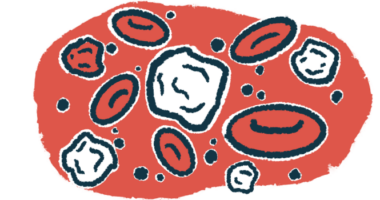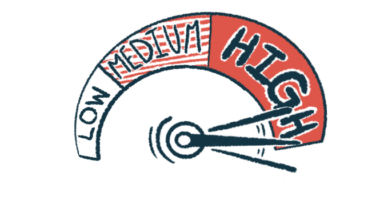Rituxan Maintenance Therapy Reduces Relapse Rates in EGPA Patients, Study Finds

Patients with eosinophilic granulomatosis with polyangiitis (EGPA, or Churg-Strauss syndrome) who receive scheduled Rituxan (rituximab) therapy have lower relapse rates than those who are given Rituxan only during a relapse, a new study shows.
The study titled, “Scheduled rituximab maintenance reduces relapse rate in eosinophilic granulomatosis with polyangiitis,” was published in the journal Annals of the Rheumatic Diseases.
EGPA is a frequently relapsing or refractory antineutrophil cytoplasmic antibody (ANCA)-associated vasculitis. Refractory refers to the failure to achieve remission, while relapsing refers to a reoccurrence of the disease, generally requiring a higher dose of immunosuppressants or other drugs.
Researchers have identified Rituxan as an effective treatment for ANCA-associated vasculitis, and one study, in particular, demonstrated that Rituxan is effective for EGPA patients, especially those who are ANCA-positive.
To further establish Rituxan’s effectiveness in EGPA patients, Italian researchers studied the outcomes of 21 EGPA patients who received Rituxan-induction therapy for refractory/relapsing disease between 2011 and 2017. As part of induction therapy, patients were administered 1 g of Rituxan every two weeks as an add-on to their continuing immunosuppression therapy.
Of the 21 patients, 20 completed Rituxan induction, and 15 achieved remission at the third month. Nine of those patients were then scheduled for Rituxan maintenance therapy, which consisted of administering 500 mg every six months. The others received Rituxan only during relapse, which consisted of a single infusion of 1 g of Rituxan.
One-third of the 15 patients who achieved remission relapsed within six months, but the relapses occurred only in patients who did not receive Rituxan maintenance therapy. Relapse-free survival was significantly lower in patients who were administered Rituxan only during relapses.
Comparing ANCA-positive and ANCA-negative patients, no differences were found in response to treatment, relapse rates, time-to-relapse, or major organs affected by disease. A larger number of ANCA-positive patients were in remission at six months and 12 months, but the findings were not statistically significant, researchers noted.
For adverse events, two patients developed pneumonia and one patient developed bronchitis. Two patients also died during treatment, one from arrhythmia (irregular heartbeat) and one from astrocytoma (brain cancer). After a median follow-up of 24 months, 19 of the 21 patients were still alive. Eleven were in remission with Rituxan maintenance therapy, and eight were stable on other drugs (prednisone and immunosuppressants).
Researchers said the study’s findings indicate that Rituxan is an effective drug in patients with refractory or relapsing EGPA. It not only induced remission quickly but also reduced relapse rates when administered as a maintenance therapy. The authors noted that while the results are promising, the study’s small sample size is a limitation, and it should be replicated with a larger group.






